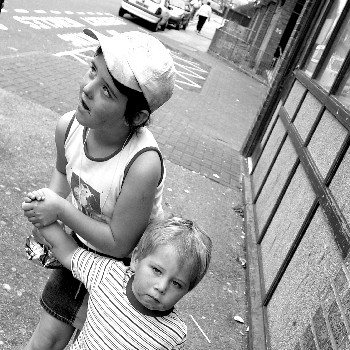 The unthinkable tragedy that hit Newtown, Connecticut last week has no rational explanation, no silver lining, and no moral. It’s senseless and horrible and painful for everyone touched by it it. As parents of elementary children, we will be faced with the challenge of if, when, and how to discuss the horrifying event with our children.
The unthinkable tragedy that hit Newtown, Connecticut last week has no rational explanation, no silver lining, and no moral. It’s senseless and horrible and painful for everyone touched by it it. As parents of elementary children, we will be faced with the challenge of if, when, and how to discuss the horrifying event with our children.
There are many variables that will impact the way you discuss this with your child, or if you even talk about it at all. The age, temperament, and sensitivity of your child will weigh heavily into the if and how. It is tempting to try to ignore the issue with the younger end of the elementary school age range, hoping that kindergarten and first graders may never hear a word about it. As we move farther toward the junior high years, it becomes a near certainty that your child will hear about it somewhere — news, peers, online (talk of the tragedy is all over Facebook, for example).
While there as many variations on the conversation as there are children, there are a few rules of thumb that will be helpful in most cases.
First, be reassuring. You cannot personally guarantee that your child will not be in danger at his or her school, public or private, but you need to say and do whatever it takes to make your child feel safe. Honesty is among the most vitally important hallmarks of good communication with your children but stark, frank full-disclosure honesty is not what’s called for here. Reassuring, positively-spun, comforting truth about the extreme unlikelihood of something like this happening at your child’s school and the stringent measures his or her school is taking to ensure student safety is the kind of honesty required in this situation.
Measure the details carefully. Elementary children don’t need to know the gory details. A bad person killed a lot of people, including children, is a good starting point. Kindergarteners, in particular, don’t need to know the age of the children killed in Newtown.
The natural follow up question that virtually all of us will face (I already have) is: why? Why did he do it? This is a hard question for adults to digest. What could possibly inspire such an incredible level of evil in such a young man? How could someone veer so far off the rails in just two decades of life? I don’t know. I don’t even want to contemplate it. But the question is unavoidable and you will need to be prepared to answer it as briefly and broadly as possible. “Nobody really knows” is one choice. “He was a very bad man” is another. Anything you say will feel woefully inadequate at the time. Don’t worry. You aren’t alone. We’re all at a loss on this one. There is no one right answer.
Whether you choose to broach the subject with your child or wait it out is up to you. But either way you should have a game plan for if and when the conversation does come up.










